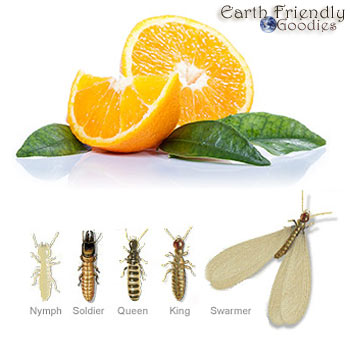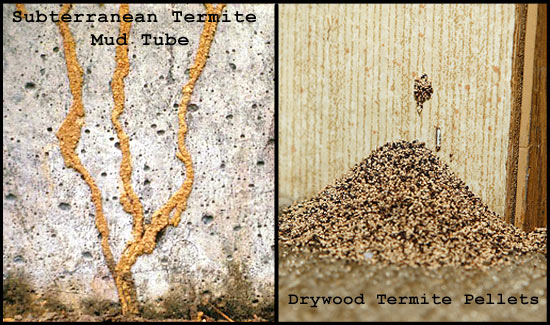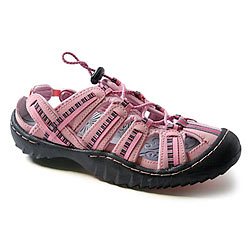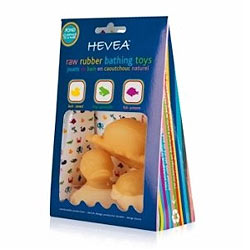I’ve heard of orange oil being used as a natural liver detox and also as an effective heartburn remedy but in this guest post from Kathy Spremich she talks about her experience with orange oil used for treating termites – who knew? If you have a termite problem perhaps this natural method of termite removal would work for you.
CONTENTS
- How Does Orange Oil Kill Termites?
- Does Orange Oil for Termites Work?
- How Do I Know if I Have Termites?
- Subterranean Termites:
- Drywood Termites:
- FAQ
- How do you use orange oil for drywood termites?
- How long does orange oil last for termites?
- How do you make orange oil spray for termites?
Finding out you have termites is never a good thing. When I found out I had a dry wood termite problem; I immediately began dreading the commonly used tenting treatment.
The last thing I wanted was my entire house exposed to nasty chemicals. Not to mention that tenting requires you to leave your home and pack up most of the items in your home in airtight plastic containers.
With a bit of investigation, I discovered an orange oil termite treatment. It’s an all-natural product used to treat dry wood termite infestations.
How Does Orange Oil Kill Termites?
 The active ingredient in orange oil is d-limonene which comes from the rind of the orange. When oranges are distilled to extract orange juice Limonine is the natural result of this process.
The active ingredient in orange oil is d-limonene which comes from the rind of the orange. When oranges are distilled to extract orange juice Limonine is the natural result of this process.
Limonine is most commonly used as a fragrance in perfumes and household cleaners but it was discovered that it works great in pest control as well because it breaks down the skin, central nervous system and vital organs of termites and other insects on contact, including their eggs.
Orange oil is so effective for treating drywood termites that many companies are beginning to use it as an alternative to tenting and fumigation. I decided to work with a company that used orange oil (called aptly enough Citrugard), since I was concerned about exposure to dangerous chemicals and I didn’t want to have to vacate my home.
Supposedly fumigation doesn’t kill termite eggs either so that’s another big plus for orange oil termite treatment. The company explained that orange oil works by killing existing termites and eggs it comes into contact with. Plus when it soaks into the wood orange oil kills any termites that eat that wood.
Does Orange Oil for Termites Work?
The best thing about this termite treatment is that it provided results. After the treatment, the termites were eliminated and I still haven’t had another problem with them. While I was thrilled to get rid of the termites, I also felt great knowing that I had made a choice that was friendly to the environment, not to mention the health of my family.
The cost of the orange oil termite treatment was reasonable as well. In fact, it was cheaper than the quotes I had been given for a tenting and fumigation treatment. Although I know it is possible for the termites to come back, I still felt like I was getting a great deal.
If I do have a problem with termites again, I’ll be going the orange oil route to eliminate the problem, knowing that it is safe, environmentally friendly and a much easier solution than tenting.
How Do I Know if I Have Termites?
While there are about 4000 species of termites there are two main types of termites that cause damage to homes. You’ll want to look for signs of drywood termites or subterranean termites – each have their own tell tale signs of infestation.
If you aren’t sure if you have a termite problem or what type of termites you may have here are the two termite types and what to look for.

Subterranean Termites:
Subterranean termites live in colonies similar to ants below ground, in trees or in large above ground mounds in some parts of the world. You often can identify them by a large swarming cloud in spring and fall particularly after it rains.
The most distinctive way to identify a subterranean termite infestation is by the mud tubes that crawl up the sides of buildings or internal structures. About the diameter of a pencil these white termites create the mud tubes as a way to protect themselves from ants and other predators.
While orange oil will kill subterranean termites it is not as effective against this variety of termite because they build their nests underground where the oil cannot reach.
Drywood Termites:
Drywood termites are larger than subterranean termites with dark brown bodies, a reddish head and thorax and black wings. Drywood termites are mostly found in southern climates and tend to migrate seasonally to nearby buildings during the fall.
The most identifying sign of drywood termites is the pile of small dung pellets around windows, door frames and other wood structures. You’ll notice a small kick hole above the pile of salt and pepper colored pellets that is the exit hole they push their fecal matter through.
Orange oil is most effective against Drywood termites because they live in the wood where the oil permeates.
FAQ
How do you use orange oil for drywood termites?
The most effective way to apply orange oil to an area affected by dry wood termites is to inject the orange oil directly into the wood. To do so you will need to drill small holes in the wood where you have seen evidence of termites. You will need:
- A container of orange oil or d-limonene
- A paintbrush or injection tube
- A drill
- An empty bucket
First, drill holes into the affected area. Next, dip the paintbrush in the orange oil and brush it into the holes to apply the orange oil. To get deeper penetration using an injection tube is more effective than a paintbrush.
Finally, empty any remaining orange oil in the bucket into the holes. The orange oil will kill the termites and prevent them from causing further damage.
How long does orange oil last for termites?
The orange oil can last for a few months, but sometimes those pesky termites are pretty persistent so you may need to reapply if the termites return. Since orange oil is safe and effective it can help protect your home from termites as well as other pests. Crickets, spiders, wasps, fleas, lice, and ticks are just a few of the common pests orange oil may be effective for treating.
How do you make orange oil spray for termites?
To make a quick and easy orange oil spray for termites, you will need one gallon of water and 30 drops of orange oil essential oil.
Add the water and orange oil to a spray bottle and shake well. Spray the solution on areas where you have seen evidence of termites. Reapply as needed.

 Earth Friendly Goodies If it's Good for the Earth it's Good for Your Health
Earth Friendly Goodies If it's Good for the Earth it's Good for Your Health 


Do you have any natural suggestions for spiders?
Really neat way to take care of this problem safely. Always looking for healthy solutions to things like this!
Great article! I really learned a lot from this. I’ve been experiencing termites in our garage area for almost a month. Honestly I’m having a rough time fixing it as it is like their numbers are never ending. I tried to hire a termite professionals and hopefully it worked.
Orange oil is so effective for treating these drywood termites that many companies are beginning to use it as an alternative to tenting and fumigation. I decided to work with a company that used orange oil (called aptly enough Citrugard), since I was concerned about exposure to dangerous chemicals and I didn’t want to have to vacate my home. Supposedly fumigation doesn’t kill termite eggs either so that is another big plus for orange oil termite treatment. The company explained that the orange oil works by killing existing termites, and eggs it comes into contact with, plus when it soaks into the wood orange oil kills any termites that eat that wood.
Now I know what’s the difference between the subterranean and drywood termites are. The ones I saw outside the back was a subterranean type. Thanks for sharing this. Totally helpful.
I have never heard that before in my life. Anyways I used many things in my garden but nothing happened, I hope your tips will remove them from my garden.
This article dos not say HOW to use it. spray it on directly? drench? mix with water first?
It really depends on what product you are using. It is best to follow the directions on the product you purchased. But if you are trying to use concentrated orange oil a recommended dilution is 4 drops per gallon of water. You would then use that solution in a vaporizer.
The most effective method is to detect where the termite galleries are located with an acoustic detector. You would then need to drill holes in the wall in order to inject the vaporized orange oil solution.
This is just a general overview as it is a pretty complex operation. If you are doing it yourself I’d recommend looking for a more detailed guide before drilling up your walls.